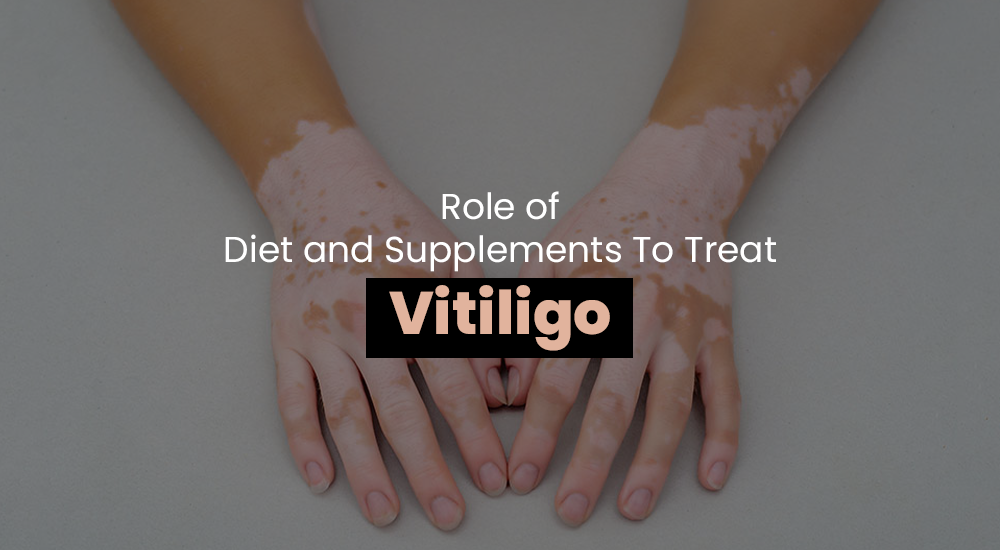Not much is known about the role of diet and supplements in the treatment of vitiligo, a skin disorder that causes pigmentation patches which are different from the usual skin color. A quick search on the internet will return many claims about how special diets, vitamins, and other supplements treat or even cure vitiligo, and others to avoid, as they supposedly make vitiligo worse. But not many are backed by scientific evidence.
For example, there is a long-standing belief that drinking milk while eating fish can cause vitiligo or that drinking water out of copper vessels is beneficial. There are vitamins like vitamin B12 and vitamin D, or antioxidants like vitamin E, beta-carotene, and vitamin C that are said to improve this vitiligo condition. Let’s find out what actually works and what not.
Firstly, it’s an overactive immune response (autoimmunity) that causes vitiligo, which makes immune supplements a sheerly bad idea to take, since it can harm more than help. In fact, all of the effective treatments for vitiligo actually suppress the overactive immune system.
It is true that vitiligo patients may be deficient in a number of vitamins including Vitamin D and Vit B12. Vitamin D is probably the most common, because vitiligo patients need to avoid the sun to prevent burning of their sensitive white spots. While supplementing their vitamin D may be a good idea for their overall health, it is unlikely to help much with vitiligo.
Another example is supplementing vitamin B12 deficiency, another commonly deficient vitamin in vitiligo patients compared to the general population. Vitamin B12 deficiency is usually a result of pernicious anemia, an autoimmune disease in which gastric parietal cells which are important to help absorption of vitamin B12 from the stomach into the blood, are destroyed. As a result, vitamin B12 cannot be absorbed through the diet, leading to deficiency.
So what does it have to do with vitiligo? Vitiligo patients can also develop pernicious anemia, as some of the genes that contribute to vitiligo and pernicious anemia are the same. So, vitiligo patients may have vitamin B12 deficiency white spots on skin, similar to spots of vitiligo. Supplementation of vitamin B12 will help improve this situation a bit.
But talking about diet, eating a gluten free diet or including gluten will not affect vitiligo, unless you are allergic to gluten otherwise, which makes it necessary to go gluten free. Changing your diet accordingly to help reduce the spread of disease further, may be an option but to solely depend on the claims on the internet, without consulting a doctor for the same isn't a good idea at all.


Share:
Iron Supplements That are safe For Kids If They Are Suffering From Iron Deficiency
Want a sparkling glow on skin? Here’s how Glutathione can make it happen!